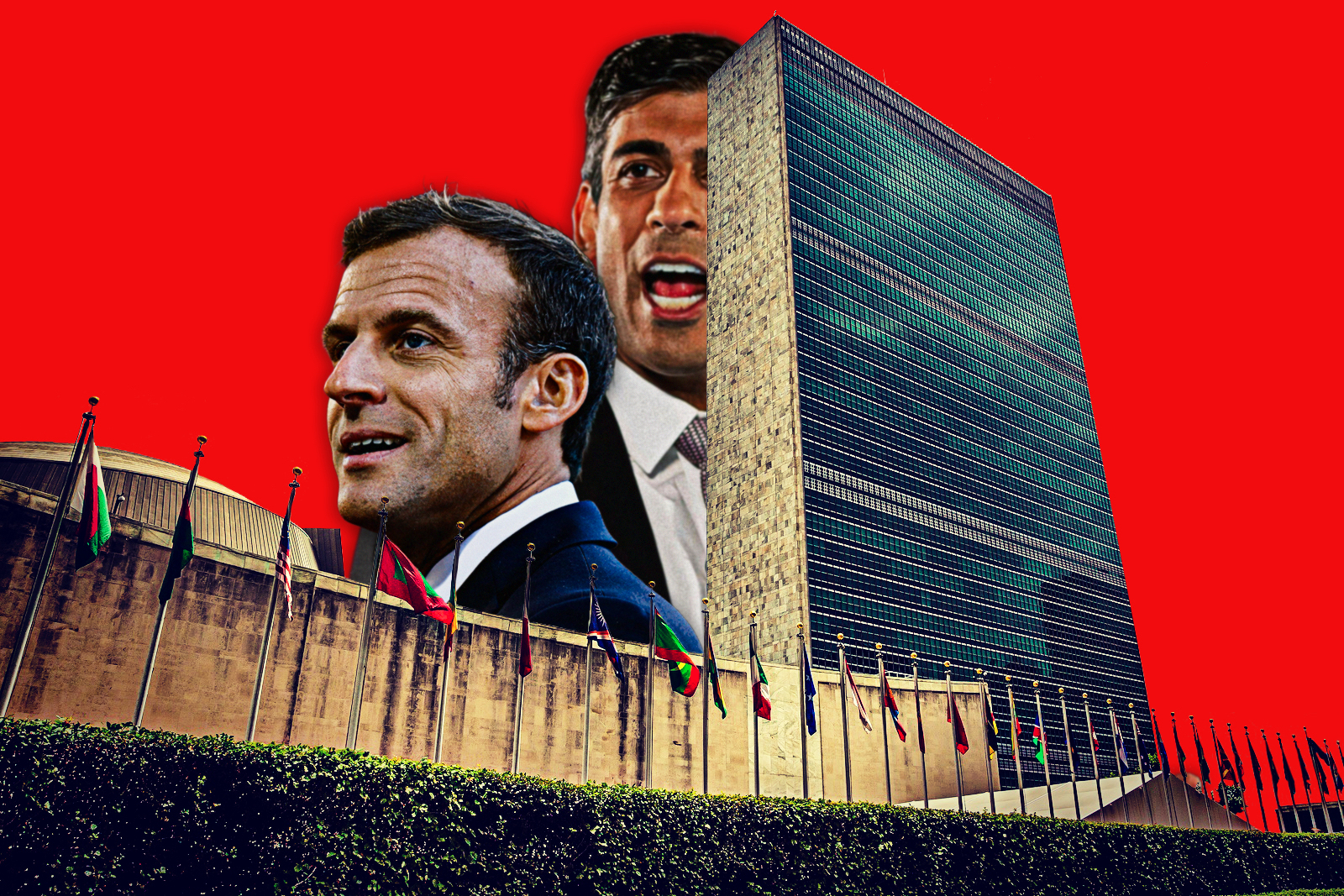
The UN Security Council Needs a Facelift. Give France and the UK the Pink Slip.
At the end of the Second World War, the UN Security Council was founded, a reflection of the global power structure as it stood on October 24, 1945. Within this pivotal arm of the United Nations, fifteen nations hold sway, five wielding the formidable clout of permanency: the United States, the United Kingdom, France, China, and Russia. These countries were at various times the unchallenged architects of world order.
Yet, as the curtain falls on 2023, the once-static tableau of global power reveals its seismic shifts. The enduring relevance of the United Nations hinges on its adaptability to the evolving geopolitical landscape. Anachronistic as it may seem, the Security Council’s composition beckons for reevaluation — a recalibration that could see emerging powers ascend to permanence while others, perhaps, recede. Such transformation is not merely administrative; it is a recognition that the world of 1945 is not the world of today, and the United Nations must mirror the present if it is to shape the future.
In the grand geopolitical chessboard, permanency on the UN Security Council is the king’s privilege, a status currently held by the United States, Russia, and China. As the dust of World War II settled, the United Kingdom and France were seated at the victors’ table, colonial giants of a bygone era. But as the pages of history turned, the might of these nations dimmed in the global spotlight.
Fast forward to today: it’s time for the Security Council to reflect contemporary realities. France and the UK, while respected actors, no longer command the colonial breadth that once defined their global stature. In recognition of a united Europe’s role on the world stage, the baton of permanent representation deserves to pass to the European Union, a formidable collective voice of the continent’s aspirations and commitments.
Meanwhile, India emerges as a colossus in the East, its 1.4 billion-strong populace and economic clout warranting a seat at the highest echelon. This isn’t just a nod to diversity; it’s an acknowledgment of the shifting tectonic plates of influence.
The narrative of World War II highlights the resilience and contributions of these nations, despite the trials faced. France, though occupied, maintained colonial territories largely unbruised by war’s ravages, their cooperation with Japanese forces leaving a complex legacy. The UK’s colonies bore the brunt of conflict, facing occupation and devastation, yet India stood as an exception — a subcontinental power in waiting.
The Security Council’s reform isn’t just about past glories or the echoes of war; it’s about sculpting a body that mirrors the present’s power, promises, and potential. It’s about crafting a Council that can effectively steward global peace and security in a world where Europe speaks with a single voice and India rises with the dawn of a new era.
In the shadow theatre of the Cold War, political optics often diverged from geopolitical reality. The United States, navigating a world of superpower rivalries, upheld the narrative of French and British global preeminence—a narrative at odds with the countries’ actual, more regional, sphere of influence. This was a necessary illusion, a strategic sleight of hand in a bipolar world order.
But the Cold War’s end tore the iron curtains and with it, the need for such fictions. Today’s geopolitical landscape demands acknowledgment of the true power dynamics. France, for instance, stands as a pivotal force in Europe, second only to the U.S. in the Mediterranean — a testament to its enduring regional influence.
The ambition of former French President Nicolas Sarkozy for a “Mediterranean Union,” first voiced in 2007, was not merely a diplomatic overture but a strategic maneuver. This envisioned alliance was part of France’s grand design to recalibrate its influence, particularly as a counterbalance to Germany’s predominance within the European Union.
Such strategic shifts are not merely regional chess moves; they are France’s bid to redefine its role and reach in a post-Cold War era that no longer subscribes to outdated myths of power. The fiction of the past has given way to the frank politics of the present, where influence is measured not by historical legacies but by current capabilities and ambitions.
In the geopolitical theater, France has reasserted its historical maritime prowess, taking a proactive stance in the Mediterranean. In a show of force and diplomatic muscle, September 2020 saw France’s flagship, the Charles De Gaulle, sail into the eastern Mediterranean. The mission: a clear signal to defuse the high-stakes drama over Turkish drilling in the disputed waters off Greece and Cyprus.
Yet, France’s reach, however formidable in the regional context, does not extend globally with the same might. This realization prompts a strategic pivot: the proposal to transfer France’s permanent seat at the UN Security Council to the European Union, ensuring that Europe’s voice resonates at the zenith of global governance.
Across the channel, the United Kingdom grapples with the vestiges of a diminished empire. Post-Second World War, Britain’s economy was in ruins, and the dominos of decolonization tumbled swiftly. India’s independence in August 1947 was a seismic shift, signaling the end of British imperial primacy. The Suez Crisis of 1956 delivered the coup de grâce, exposing the limits of Franco-British power on the world stage.
The United States once found strategic value in upholding the illusion of Franco-British global preeminence — a charade that has since lost its utility. Britain’s transition from colonial titan to the head of the Commonwealth marks a profound transformation — from empire to influence without dominion.
Nevertheless, the United Kingdom retains formidable capabilities: its military remains among the world’s elite, and its economy, with a GDP of $3.1 trillion, is a testament to its enduring economic clout. Despite this, the long shadow of its imperial past recedes, heralding a new era of recalibrated global reach and influence.
India’s ascent to global prominence is underscored by an impressive display of military might and economic momentum. With a military that commands respect — boasting two aircraft carriers, a formidable array of destroyers, frigates, and a fleet of both nuclear and conventionally powered submarines — India’s naval capabilities now eclipse those of the storied British Royal Navy.
Forbes magazine pegs India’s economy at a robust $3.73 trillion, reflecting the country’s burgeoning financial clout. This economic surge is complemented by the second-largest standing army in the world, a formidable air force, and a strategic cache of nuclear weapons, underscoring its status as the world’s fourth most powerful nation.
Beyond military and economic metrics, India’s societal indicators tell a story of a nation on the rise. With a population of 1.4 billion, a burgeoning middle class, and an educational system churning out a skilled workforce, India’s socioeconomic trajectory is one to watch. The decline of poverty to below 19 percent and the ascent of educational attainment are fueling an optimistic forecast for sustained economic expansion.
The confluence of India’s power profile, demographic vitality, educational advancements, and economic expansion is not just impressive — it’s a clarion call for the nation’s elevation to a permanent seat at the UN Security Council. India doesn’t just meet the criteria for great power status; it demands a redefinition of what it means to be a global power in the 21st century.
